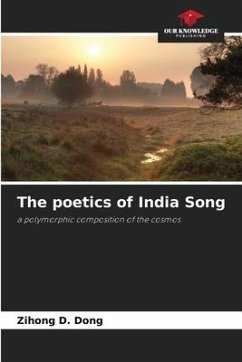How, through the cinematographic medium, can we construct an ancient history without giving it back? A grotesque question, no doubt, but at the same time a pertinent one, when one is confronted with the filmic work of Marguerite Duras: India Song, a 1974 production, the most fictional, perhaps the most splendid too, among many of the writer's film experiments. By its inherent characteristics of bifurcation between the narrative sound and the "schematized" visual, between the "factitiousness" of the figures and the surrounding dynamism, or between the somnolent autonomy and the turn to virtual tendency of the diachrony, the film puts forward a properly affective "memento", in which are condensed, in crystalline images, the novelistic preoccupations of the writer of the 1970s: desire and madness, itinerant vacuity, stagnation and the darkening of causality. More than a "thoughtful" shooting, this spherical structuring of transcendence and sensitivity invites aesthetic enthusiasts not so much to question it, as to mix narrative perspectives aimed at meditating on the experience of an existential detachment.
Bitte wählen Sie Ihr Anliegen aus.
Rechnungen
Retourenschein anfordern
Bestellstatus
Storno








